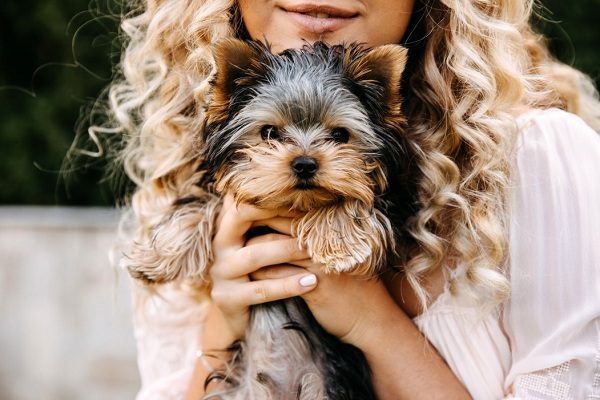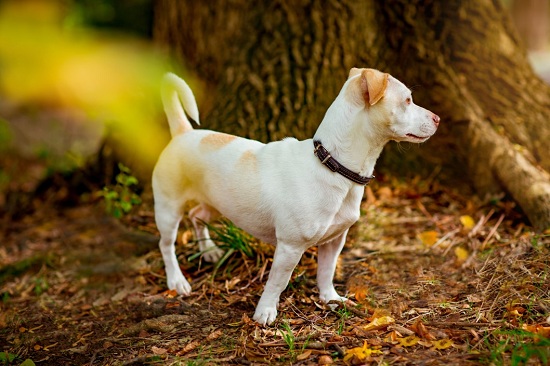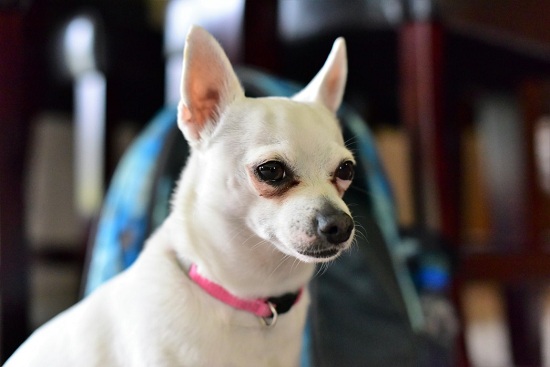These questions will come to your mind when you prefer a small dog breed over a larger dog breed as a pet dog.
- Do you feel that small dogs can bring a bundle of joy hoods into your house with their cutie looks?
- Do you think small dogs are easier to handle? Do you feel that small dogs are a substitute for toys?
- Do you feel that your small kid can feel comfortable in the company of a small breed?
If you feel this way, you should be aware of the merits and demerits of small dogs. This article will help you gain detailed information on the positives and negatives of having a small dog breed.
Reasons for preferring small dog breeds
Small breeds are popularly known as toy dogs. The reason behind the name is their small size, which resembles toys. Today, people prefer a smaller breed over a larger one. Therefore, the popularity of smaller breeds is due to their sweet and cute looks and the area constraints that people face when living in small apartments.
Due to their small size, you don’t require a vast space to accommodate them. According to research, many toy dogs are more registered than larger ones. It is a different scenario from the past.
Many owners think owning a small breed requires little attention and responsibility. But the fact is different from this. Before owning or adopting a pet, you should evaluate the original scenario. One of the most important aspects is what breed you should choose.
Toy dogs are becoming fashion icons due to celebrity adaptation. So, people take them as an addition. But they are more than an addition. Before bringing them to your home, you should study them. In reality, they need more care and attention than a large breed.
Another reason for adopting a small breed is space constraints, as more and more people are moving to cities where they have to live in small apartments. In those apartments, space is a significant concern. In this scenario, these small dogs are the ideal fit. Also, small dogs are much more adaptive to their atmosphere than large variety.
So before going for them, you should study their negative and positive sides. Below, we are providing these things that can help you decide.
Advantages of having small dog breed
Irrespective of the size of your room, small breeds are well adapted to the area. Smaller breeds are the best match for people living in the cities because the apartment or housing society has limited space for sharing with their pets. So, small dogs are well-fitted for this situation. They don’t require an expansive area for playing and exercising like a large breed dog.
Regular walking and exercising are optional for them. Sometimes, they need fewer such activities. You do not bear huge expenses on their food as their food intake capacity is less than that of a large breed. Any medical issue costs less than a big one.
Another thing is that the toys and accessories required for them are less expensive. It helps save some extra while keeping a smaller breed than a larger one. Like a cat, smaller breeds are more adaptive in times of new pet introduction than the big ones.
Another aspect of little dogs is that they can easily mix with other people, depending on their breed type, surrounding circumstances or conditions, and nature.
Little dogs are allowed on any transport system. It helps you eliminate the baggage system expenses. A crate or baggage is mandatory for big dogs as per airline law. A small breed’s average life span is more significant than a big one’s. But it indeed depends on some conditions.
Small dogs are handy to carry at any place. You can take them everywhere, placing them in your hand or baggage. In the case of hotels, restaurants, motels, shops, and malls, smaller breeds are easy to accept by the place owner and strangers.
Comfort is another crucial aspect of the small type. That doesn’t mean large dogs can’t be comfortable. But smaller breeds are more trouble-free to maintain as lap dogs than big ones, increasing the bonding faster with their owner. Smaller dogs majorly eliminate their larger cousin by sheer prettiness and snuggling.
Seven advantages of a small dog breed
- They are more portable and easily transported in a carrier or purse.
- They require less space and are well-suited for small apartments or homes.
- They typically have lower exercise needs, making them a good fit for people with busy lifestyles or limited mobility.
- They are often lower maintenance and have lower grooming needs than larger breeds.
- They can be easier to train and better suited for first-time dog owners.
- They are often considered “lap dogs” and make great companions.
- They tend to have a longer lifespan than larger breeds.
The disadvantage of having small dog breeds
Due to their persistent nature, it is harder to train a smaller dog than a more giant breed. For example, in-house training, due to a lack of proper training, the smaller breeds become messy inside the home and create a hell of a nuisance. It becomes worse if you don’t habituate them to outdoor pee and poo through training in their early stage when they are pups.
They need schooling to be social with others who are not a part of their house. Though small, they don’t bother about size during a fight or encounter with the big one, which may damage or kill them. So, it’s better to keep them on a leash.
Small breeds are very loud. They have a bent toward continuous barking. People always misjudge them due to their looks. They show more aggression toward those who touch their things or body.
Some people choose small breeds for their children. However, it is not a good idea. First of all, they need to improve at training. The other thing is that there are more chances of injuries while playing with children. Small breeds are more costly and demanding, too. Smaller breeds are never considered good guard dogs.
Eight disadvantages of having small dog breeds
- They are more fragile and prone to injuries and health issues.
- They may be more susceptible to cold temperatures and need extra protection in cold weather.
- They may be more prone to dental problems due to their small jaw size.
- They may be more prone to certain inherited health conditions.
- They may be more prone to being yappy or excessively vocal.
- They may be more prone to developing Small Dog Syndrome, where the dog becomes overly demanding and demanding attention.
- They may be more expensive due to their specific needs, such as high-quality food and veterinary care.
- There may be better choices for homes with young children or other pets.
Conclusion
Owning a small dog breed can have both advantages and disadvantages. Some benefits include that they are more portable, require less space, have lower exercise needs, are often considered “lap dogs,” and make great companions. They also tend to have a longer lifespan than larger breeds.
On the other hand, some disadvantages include that they are more fragile and may be more prone to injuries and health issues, more susceptible to cold temperatures, more prone to dental problems, and more expensive to care for due to their specific needs.
Better choices for homes with young children or other pets may also exist. Ultimately, whether or not a tiny dog breed is right for you will depend on your lifestyle, living situation, and personal preferences.
FAQs
Q: What are the advantages of owning a small dog breed?
A: Small dog breeds are often more adaptable to smaller living spaces, require less food, and can be easier to travel with. They also tend to have longer lifespans and may be more suitable for individuals with limited physical space.
Q: Are there any disadvantages to owning a small dog?
A: While small dogs have many benefits, they may be more prone to specific health issues, and some can be more challenging to train. Smaller breeds may be better for families with very young children.
Q: What kind of exercise do small dogs need?
A: Small dogs generally require less exercise than larger breeds but still need daily walks and playtime. Tailored to their size, exercises that engage them mentally, like puzzle toys, can be beneficial.
Q: Do small dog breeds get along well with other pets?
A: The temperament varies, but many small breeds are friendly and can get along well with other pets. Proper socialization from an early age is crucial, and individual personalities play a significant role in their compatibility with other animals.
 DogExpress
DogExpress




















 in Chandigarh, India.
in Chandigarh, India. 

